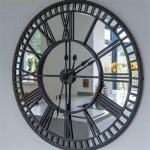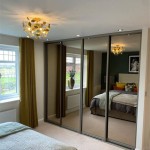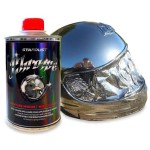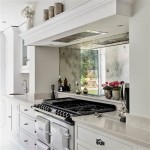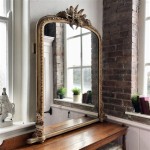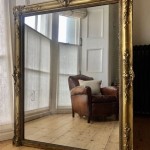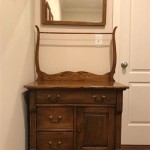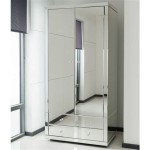How to Create a Mirror Wall in Revit
Creating a realistic mirror wall in Revit involves more than simply applying a reflective material. This article outlines several methods to achieve this effect, ranging from simple material adjustments to more advanced techniques involving wall types and families.
Method 1: Using a Reflective Material
This method is the quickest and easiest way to simulate a mirror. It relies on applying a material with high reflectivity to a standard wall.
1. Open the Materials Browser (Manage tab > Materials). 2. Either create a new material or duplicate an existing glass material to modify. 3. In the Material Editor, navigate to the Appearance tab. 4. Adjust the Template to "Generic." 5. Under the Generic Settings, increase the "Reflectivity" value. A value of 1.0 represents a perfect mirror. 6. Experiment with other parameters like "Glossiness" and "Transparency" to refine the look. A lower glossiness value simulates a frosted or etched mirror. 7. Apply the newly created material to the wall face you wish to designate as a mirror.
This method is suitable for simple visualizations where accurate reflections are not critical. However, it does not generate true reflections of the surrounding environment.
Method 2: Using a Wall-Based Family (Mirror Object)
This method uses a wall-based family to create a dedicated mirror object. This allows more control over the mirror's properties and placement.
1. Create a new family using the "Wall Based" template. 2. Create a simple rectangular extrusion representing the mirror's surface. 3. Apply the reflective material created in Method 1 to the front face of the extrusion. 4. Load the family into your project. 5. Place the mirror family onto the desired wall. This method provides more control over the dimensions and placement of the mirror compared to simply applying a material.
This method is more robust than simply applying a material as it creates a separate object for the mirror. However, it still doesn't produce accurate reflections of the model geometry.
Method 3: Using a Generic Model Family with a Reflective Material
Similar to Method 2, this approach uses families, but leverages a Generic Model template, offering greater placement flexibility, independent of wall location.
1. Create a new family using the "Generic Model" template. 2. Model the mirror's shape (typically a rectangular extrusion). 3. Apply the reflective material (as described in Method 1) to the desired face. 4. Load the family into the project. 5. Place the mirror family in the desired location. Because this is a generic model family, it can be placed anywhere within the model, offering more flexibility than a wall-based family.
This method is suitable for situations where the mirror is not directly attached to a wall, such as freestanding mirrors or decorative mirrored elements.
Method 4: Using a Decal
Decals provide another option for creating the appearance of a mirror, particularly for smaller areas or complex shapes where modeling a separate family might be cumbersome.
1. Obtain or create an image of a mirrored surface. This could be a photograph or a rendered image. 2. Within Revit, navigate to the Manage tab > Additional Settings > Decals. 3. Create a new decal using the image. 4. Adjust the decal's properties, such as transparency and reflectivity, to achieve the desired effect. 5. Apply the decal to the wall face. Decals conform to the surface they are applied to, making them suitable for curved or irregular surfaces.
This method is beneficial for creating the illusion of reflections without the computational overhead of actual reflections. It's ideal for quick visualizations or scenarios where accurate reflections are not paramount.
Considerations for All Methods
Regardless of the chosen method, several factors can influence the realism of the mirror effect:
Lighting: Adequate lighting is crucial for achieving realistic reflections. Ensure the scene has sufficient lighting to be reflected in the mirror.
Surrounding Objects: The objects in the environment will be reflected in the mirror. Consider the placement and appearance of these objects carefully.
Rendering Settings: Rendering settings significantly impact the appearance of the mirror. Experiment with different settings to achieve the desired level of realism. Ray tracing is typically required for higher-quality reflections.
Material Properties: Fine-tune the reflective material's properties, including reflectivity, glossiness, and transparency, to refine the final look of the mirror.
Selecting the appropriate method depends on the specific requirements of the project. Consider factors like the desired level of realism, the complexity of the scene, and the performance capabilities of the system when choosing the best approach for creating a mirror wall in Revit.

Mirror Wall Revit Espejo Muro Bimshares

Revit Mirror Command

Mirror Command In Revit Tool Draw Axis Pick

Mirror Wall Revit Espejo Muro Bimshares

Mirror Command In Revit Tool Draw Axis Pick

Mirror Draw Axis Command Dm In Revit Revitknowledge Drawaxis

Horizontal Sweeps Or Reveals Disappear When Mirroring Walls In Revit

How To Use The Mirror Tools In Revit 2024

Mirror Material In Enscape Revit Ec Asset

Modify Commands In Revit Move Copy Mirror Rotate Scale Trim Extend Offset
See Also

